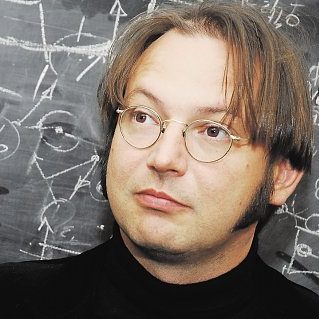
STEFAN THURNER
Stefan Thurner is a theoretical physicist and economist. His main scientific area is complex systems, the regulation of financial markets to the analysis of big data in the medical and social. He is professor of science of complex systems at the University of Vienna medicine, external professor at the Santa Fe Institute, and senior research scientist at IIASA.
Medical University of Vienna, Austria
Head of the Section for Science of Complex Systems
Website
Towards a statistics of innovation – how statistics appears from noisy search processes – all of statistics – from Gauss to Zipf
Innovation has a lot to do with the exploration of possibilities. In particular it can be seen as search processes on networks. Here we show that the theory of sample space reducing (SSR) processes, which allows to understand the origin and ubiquity of power-laws in countless path-dependent complex systems, is related to search processes on networks. SSR processes exhibit generic power-laws — Zipf’s law in particular. We show that SSR processes exhibit a much wider range of statistical diversity. Assuming that noise in the search processes is not uniformly strong across its life-span, but depends on the trajectory, we demonstrate that practically any distribution function can be naturally derived from SSR processes: No noise gives Zipf’s law, constant noise leads to exact power-laws, linear noise functions gives exponential or Gamma distributions, a quadratic noise function yields the normal distribution. Also the Weibull, Gompertz and Tsallis-Pareto distributions arise as a natural consequence from relatively simple noise functions. We shortly discuss further areas of application of SRR processes that range from fragmentation processes, language formation and cascading processes.